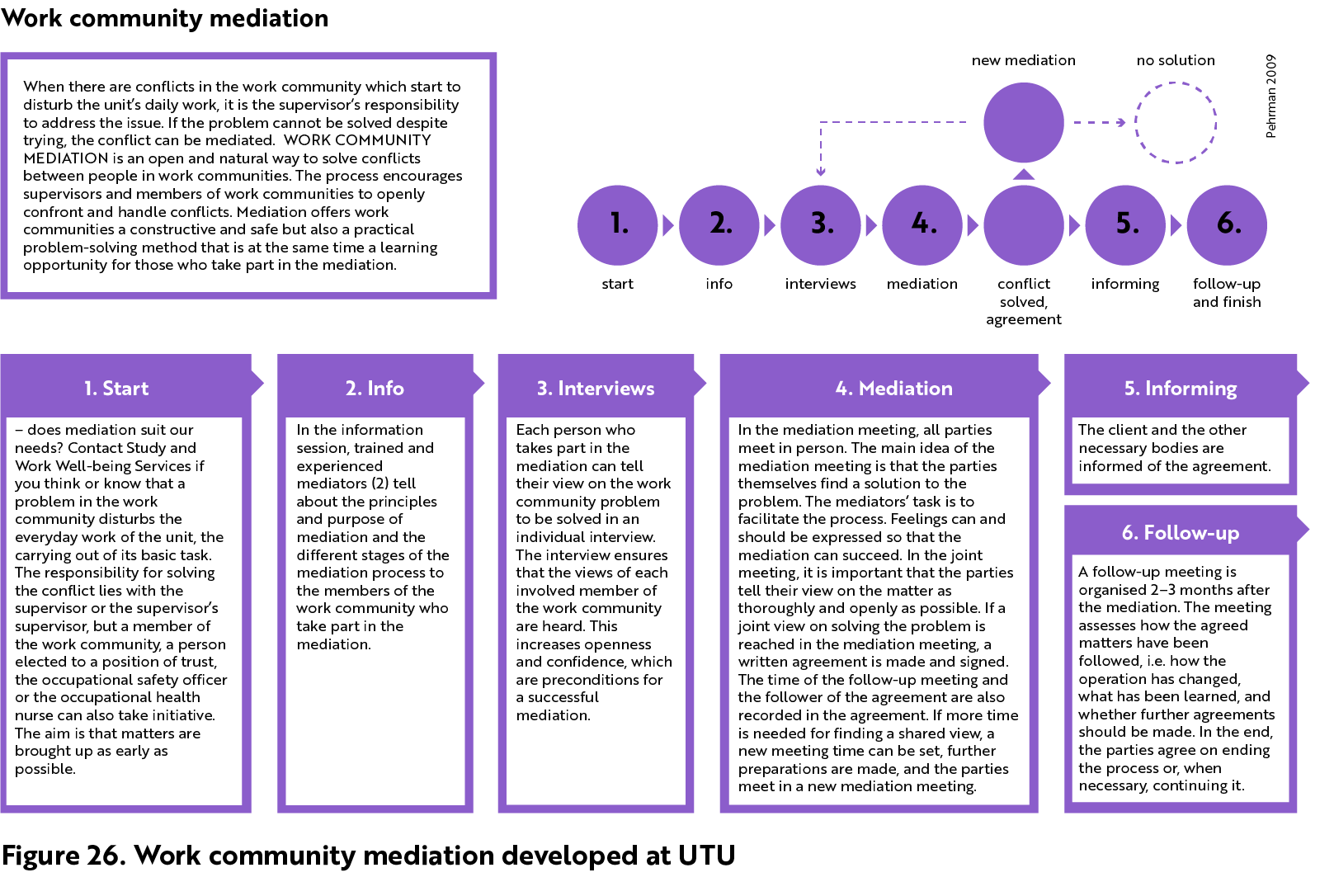UTU Management Group
The Management Group of UTU is appointed by the Rector. In addition to the Rector, it includes the Vice Rectors, deans of the faculties, a representative of the independent units, the director of the graduate school, the chairman of the board of the Student Union (TYY), and the directors of support services. The Management Group supports the Rector in managing the University. It is an important channel in the two-way communication between the University’s management and the management of the units. The Management Group deals with matters that are in progress and it also communicates about ongoing issues. All members of the Group can submit topics to the meeting agenda. Specialists present the matters to the Group, and time is also reserved for potential discussion on each topic. The Management Group is a key channel of influence at the University. Based on the Group’s input, changes can be made to the prepared matters. The Group has a shared Teams area, where agendas, memos, and presentations and other background materials are stored. Regular meetings are organised every two weeks.
Mentoring programme
At UTU, there are mentoring programmes for master’s students, personnel, and doctoral researchers, including a mentoring programme for disabled people. They support students’ transition to working life as well as the professional development and career planning of researchers and other personnel. Mentors are working life experts who want to share their experience, vision and professional networks. The quality of the programmes is based on clear processes, e.g. a personalised mentor search.
The mentoring program for master’s students builds a bridge to transition between studying and working life. Typically, the mentor is an alumnus of the university who has worked in their field for at least five years. The program is organized annually and includes meetings between the mentor and the mentee, materials, joint coaching and facilitation of the mentoring process, as well as training to support career planning and job hunting. The program will be held bilingually (Finnish, English), and the student can receive credits for participating.
The mentoring programme for doctoral researchers and postdoctoral researchers of UTU and Åbo Akademi University offers young researchers the opportunity to receive guidance for achieving their individual career goals from a mentor. The interdisciplinary programme is open to all young researchers of both universities, regardless of their funding source. In addition to bilateral meetings, the mentoring programme includes seminars in English, the focus of which is the networking and exchange of experiences of the participants.
Staff who do not belong to the target groups of the mentoring programmes for doctoral researchers and postdoctoral researchers can apply for their own mentoring programme. Personnel can receive individual support for developing their own work and skills based on their goals. The advantage of mentoring is that it can be customised according to the person’s own needs, in which case the desired support can be targeted correctly.
Developing Leadership Skills
UTU offers versatile tools for leadership skills development for supervisors and leaders. The themes for the leadership training are derived from the Strategy and its different goals and indicators. Also, current topics from the surrounding society and inside the organisation are included. Supervisors are required to participate in leadership training.
UTU offers short- and long-term leadership training. The long-term training includes Training for Supervisors, Good Academic Leadership (HAJ) training with its advanced training programmes, and Good Academic Leadership for Principal Investigators (GAL PI) training programme. Several internal operators produce short-term leadership training and the topics include themes such as finances, development discussions, leadership communication, well-being, and project leadership. For more personalised support, mentoring, coaching and work supervision are available and they are open for participation throughout the year.
Workplace mediation
Conflict cases from UTU were included in Timo Pehrman’s doctoral research on restorative workplace mediation. Based on Pehrman’s findings in 2011, UTU adopted an internal workplace mediation process for conflict resolution, and trained a network of internal workplace mediators. UTU’s process and experiences in conflict resolution interested also other Finnish universities, and the joint insurance company Varma organised a workplace mediator training for universities in 2013, after which many of the universities adopted a similar internal process for solving conflicts. The research basis of this practical HR intervention was further strengthened in 2022, when one of UTU’s mediators, Tuula Kaitsaari, defended her doctoral dissertation on the impact of workplace mediation in the university context (Kaitsaari 2022). Based on her findings and UTU mediators’ experiences, the internal workplace mediation process was developed further and complemented with a support material for mediators.
